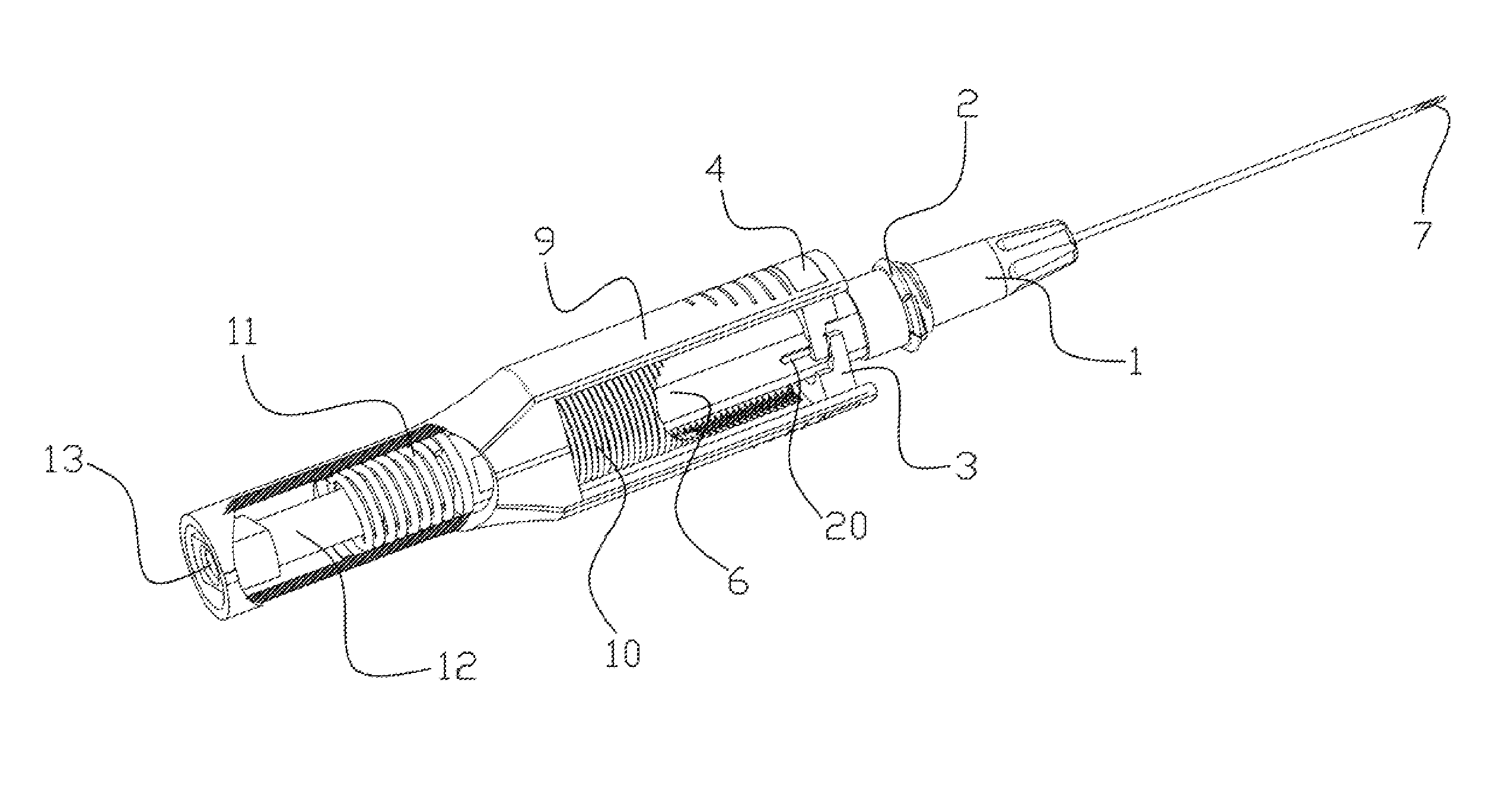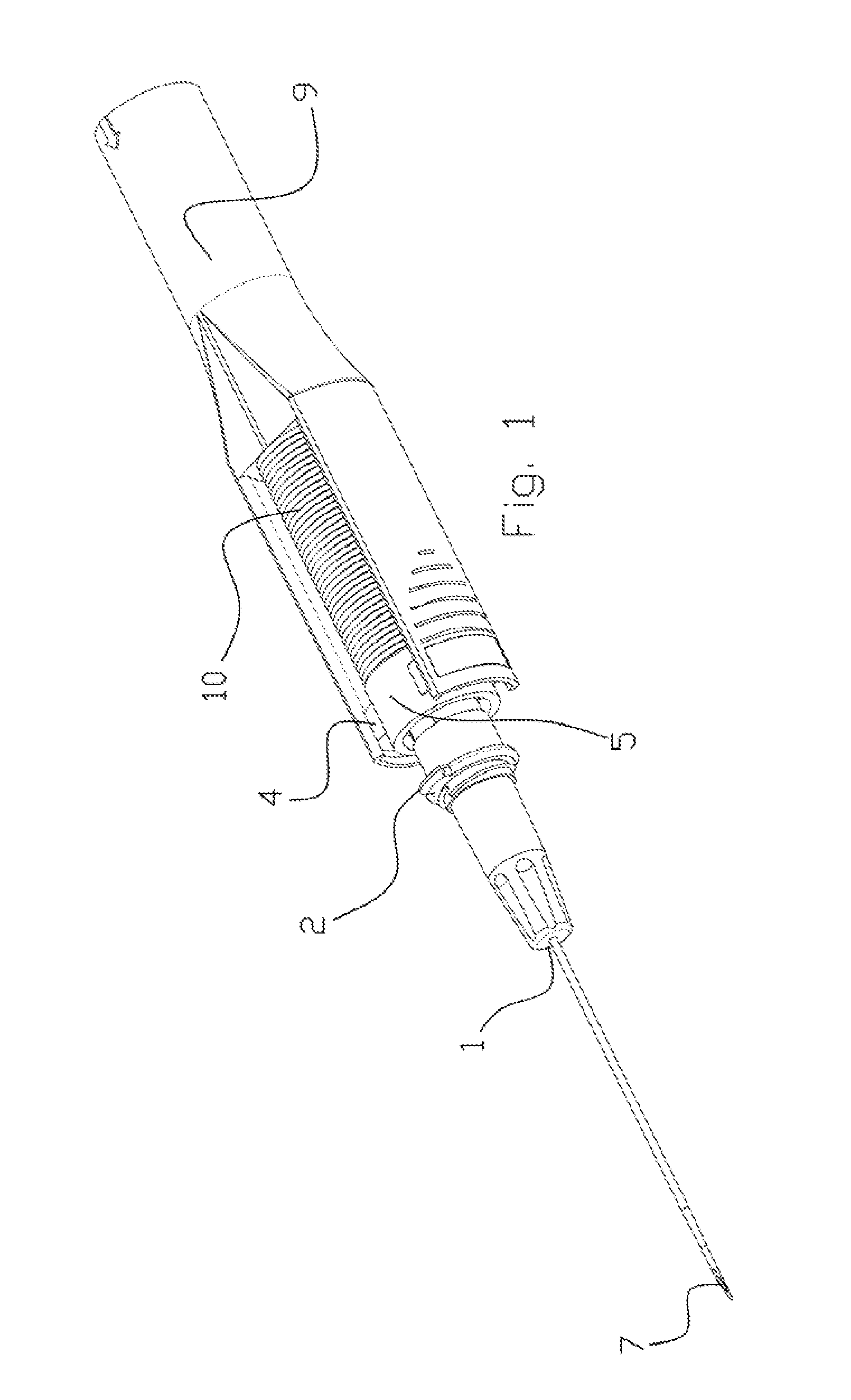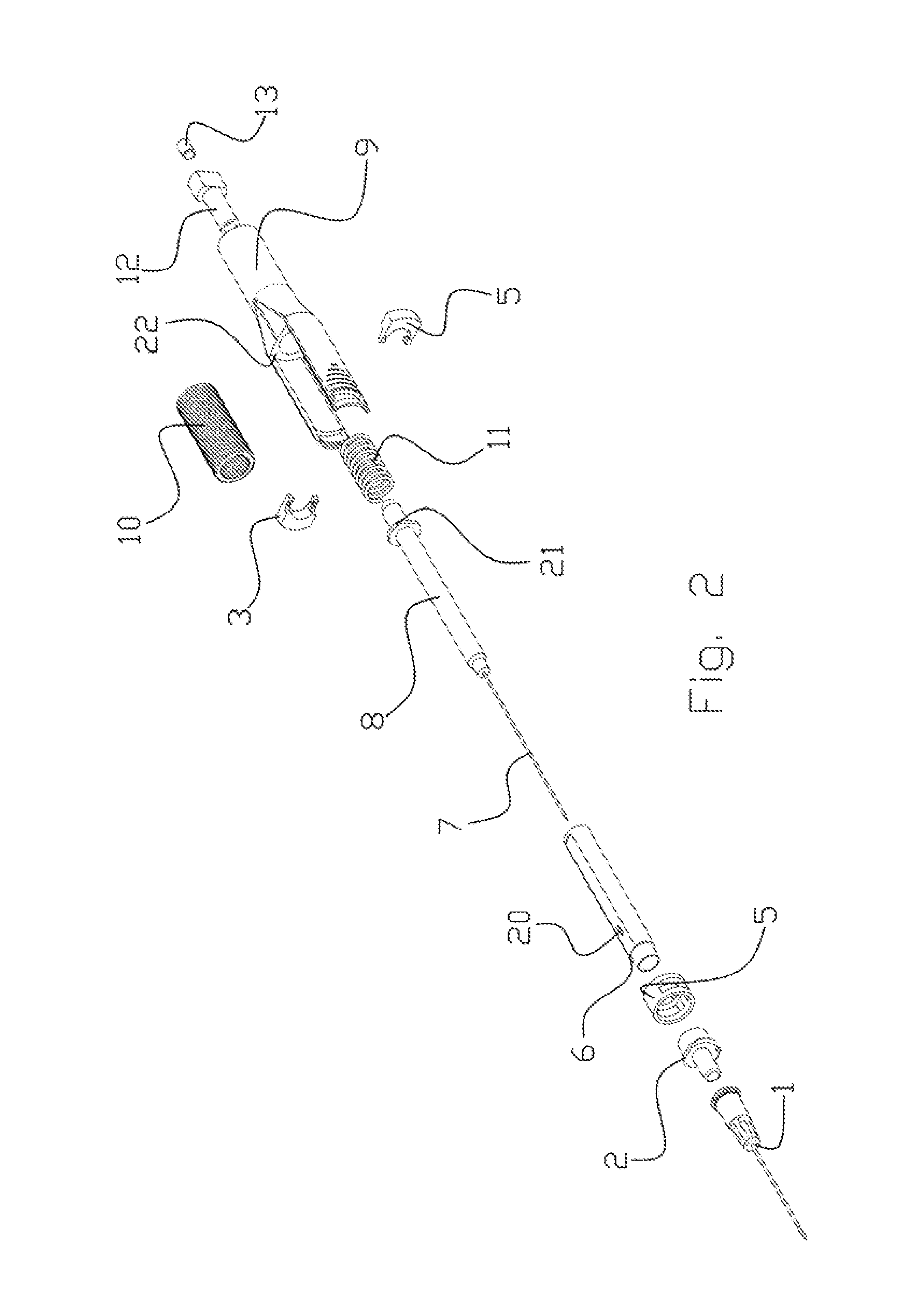Peripheral intravenous safety catheter with quick, painless puncture system
a safety catheter and puncture technology, applied in the field of hospital equipment manufacturing, can solve the problems of increasing manufacturing costs, affecting the user's ability to feel whether the needle is correctly inserted into the patient, and the needle is liable to be prematurely withdrawn, so as to prevent repeated use and incorrect perforation, reduce or eliminate pain, and ensure safe disposal
- Summary
- Abstract
- Description
- Claims
- Application Information
AI Technical Summary
Benefits of technology
Problems solved by technology
Method used
Image
Examples
Embodiment Construction
[0030]This detailed description is supported by illustrations of the preferred variant of the invention.
[0031]FIG. 1 is an isometric depiction of the Peripheral Intravenous Safety Catheter with Quick, Painless Puncture System (PISCQPPS).The catheter (1) surrounds the cannula (7). The cannula-catheter assemblage is attached to the catheter holder (3), which is located in the trigger holder (5) from which the triggers (4) protrude. The bellows section is located inside the case (9).
[0032]The PISCQPPS therefore consists of 9 parts, as shown in the exploded view in FIG. 2. As can be seen from the said FIG. 2, the parts that make up the PISCQPPS are: (1) the catheter; (2) the catheter holder; (3) and (4) the trigger guard, (5) the trigger-guard case; (6) the tube that holds the catheter; (7) the cannula; (8) the cannula holder; (9) the case; (10) the bellows; (11) the spring; (12) the filter holder; and (13) the filter.
[0033]As shown in FIG. 14, the PISCQPPS can be carried inside its cap...
PUM
 Login to View More
Login to View More Abstract
Description
Claims
Application Information
 Login to View More
Login to View More - R&D
- Intellectual Property
- Life Sciences
- Materials
- Tech Scout
- Unparalleled Data Quality
- Higher Quality Content
- 60% Fewer Hallucinations
Browse by: Latest US Patents, China's latest patents, Technical Efficacy Thesaurus, Application Domain, Technology Topic, Popular Technical Reports.
© 2025 PatSnap. All rights reserved.Legal|Privacy policy|Modern Slavery Act Transparency Statement|Sitemap|About US| Contact US: help@patsnap.com



